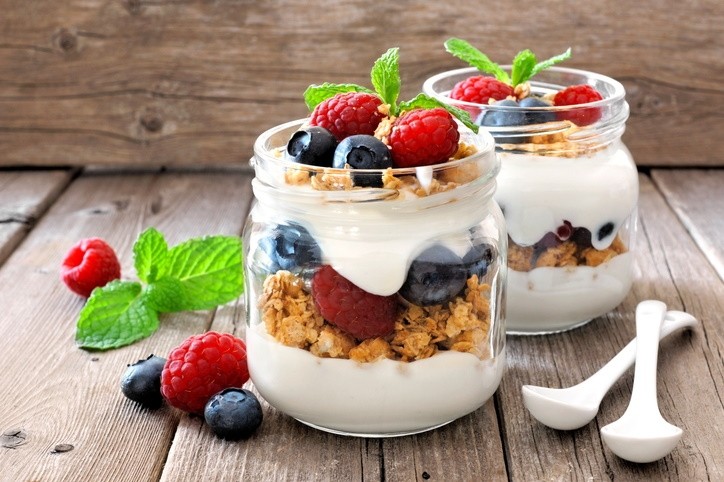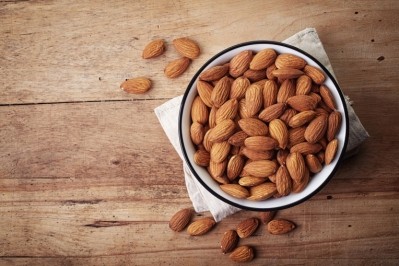Fats in fashion: ‘Fat is the product developers’ friend’

A five-country study by food industry analysts New Nutrition Business has found 34% of 25- to 44-year-olds want to eat more healthy fats. The research, which looked at attitudes across the UK, Spain, US, Brazil and Australia found this level is significantly higher than older age groups. Of consumers aged between 55- and 65-years old, only 23% are trying to eat more healthy fats.
The evolution of consumer attitudes to fat is a partial reflection of increased concerns over sugar and carbs, New Nutrition’s report suggested. But a growing number of consumers are also seeking out ‘good fats’ in their diets.
“In our survey the percentage of [people] trying to consume more 'good fats' was 25% in America, 23% in the UK and 30% in Spain. Ten years ago, that figure was about 5%,” Julian Mellentin, director of New Nutrition Business, told FoodNavigator.
Mellentin pointed to rising sales of butter and full-fat dairy as a ‘reliable’ marker for consumer behaviour. “For example, sales of cream have increased in Sweden and Denmark; 10% fat Greek yoghurt is sold in the UK - with even retailer own-label brands offering it.”
Mellentin believes the ‘low fat is best’ dietary dogma is falling by the wayside in the US, with UK consumers ‘close behind’. But it does still hold sway over ‘most people’ – and particularly older consumers.
“The rest of Europe is lagging in embracing 'more fat',” Mellentin continued. “But, on the other hand, many [European consumers] didn't ever embrace 'less fat' as much as the English-speaking world did.”
What’s a ‘good fat’?
Mellentin observed that consumer value judgements around fat reflect an evolving understanding of the role ‘good fats’ play in the diet.
"’Good fat’ is defined in the mind of the consumer, not by a regulatory or scientific definition. Right now that means things like avocado oil, coconut oil, oils from various nuts (such as almond) and dairy fat. But consumers views of what is 'good' are fragmented. One person will think it is coconut oil, another 10% fat Greek yoghurt.”
But while it might not be entirely clear what a ‘good fat’ is for consumers, Mellentin is confident that increasing numbers of people are distinguishing between what they broadly consider ‘good’ and ‘bad’ fats.
“It started in the 1990s when the 'all fat is bad' dietary mantra of the 1970s and 1980s became a bit more nuanced in the face of the fact that omega-3 fish oils were shown to have heart health benefits - and the fats occurring in tree nuts also. Since then it's been gathering momentum.”
An innovation opportunity?
New Nutrition believes that changing views about the healthfulness of saturated fat are starting to re-shape categories.
Challenger brands, big brands, retailer own-labels – all are benefiting from consumers’ declining fear of fat, according to New Nutrition.
The consultancy looks to innovation in the UK as case in point, where the likes of Marks and Spencer and Tesco both offer a 10% fat Greek yoghurt. Meanwhile, Deliciously Ella’s – a challenger brand popular with ‘health-conscious millennials’ and particularly embracing a plant-based diet – offers nut butter cups sweetened with date syrup and coconut sugar. Fat content – from coconut oil, cacao butter and almond butter – is 23g per 100g.
The inclusion of fat in recipes. Mellentin observed, opens the door to a more indulgent sensory experience.
“When people discover fat, there’s such a taste difference,” he observed. And when taste is consistently the number one purchase motivator, this can have significant implications for brands.
“Fat is the product developers’ friend, improving texture, mouthfeel, structure and moisture content. In all categories, as time passes there will be less reason to produce products that have low levels of fat. The challenge for companies is to ensure they use good quality fats where they can point to a good, natural source.”
Nevertheless, some challenges stand in the way, the innovation consultant continued. The introduction of Nutri-Score across Europe could pose a problem for high fat products, who would receive a lower overall ranking in the front-of-pack scheme which is calculated on a product’s overall nutritional profile.
“The Nutri-Score system will retard the development of 'more fat' products in some countries. But give it ten years and even that will change. The weight of science will force the Nutri-Score people to change their scoring eventually,” Mellentin predicted.
Indeed, he is confident in the scientific basis for his belief that it is possible to develop healthy high-fat products.
“The evolution of science over the last ten years has demonstrated that dairy fat has none of the negatives that were previously attributed to it. What the dietary guidelines might say is increasingly irrelevant since people can do their own online research and decide for themselves what they think is healthy.
“Low carb and high-fats diets are now described as 'safe and effective' for weight loss and management of type-2 diabetes by the Canadian Diabetes Association, a decision made in 2020. The American DA came to the same conclusion the year before. In the UK, the professional body for family doctors is teaching its members (slowly) how to use high fat and low carb diets for weight loss and T2S management, following a very successful pilot scheme. Most of Europe will follow.”
























